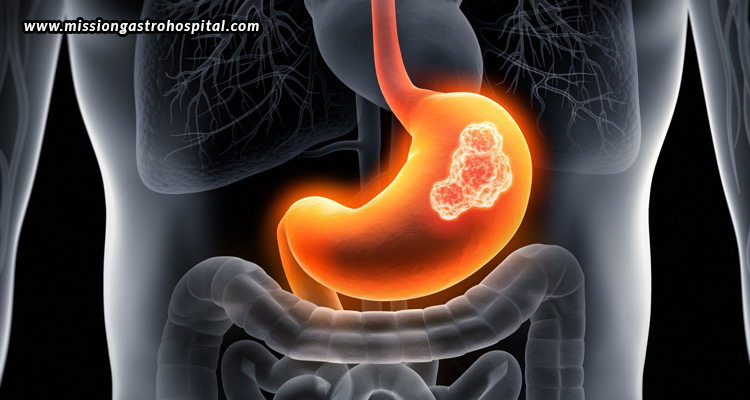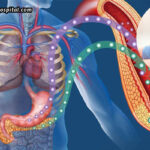Since the early symptoms of stomach cancer, also known as gastric cancer, are often mild, the disease usually goes undetected in the initial stages, and is only detected when it progresses and reaches an advanced stage. It progresses slowly, and can develop over years, starting with the formation of cancerous cells in the stomach lining. Stomach cancer continues to be a major cause of cancer-related deaths worldwide, despite a decline in occurrence in some areas. It is essential to comprehend the risk factors, early warning indications, and the need of early detection if you want to prevent yourself from facing the consequences at a later stage.
Early warning signs
It might be challenging to detect stomach cancer because its early symptoms are frequently ambiguous and nonspecific. An early warning sign may be persistent heartburn or indigestion that does not improve with standard therapies. Unexpected weight loss, an abrupt decrease in appetite, and ongoing nausea or vomiting—especially if the vomit contains blood—are other warning indicators. Stomach cancer may also be indicated by frequent bloating, feeling full quickly, or suffering pain or discomfort in the abdomen, usually after eating. Bloody or dark stools, which are a sign of internal bleeding, warrant immediate medical attention.
Risk factors
It is essential to comprehend the risk factors for stomach cancer since they are important for early detection and prevention, which may improve quality of life, thus increasing survival rates.
- Genetic and demographic risks: People who have a family history of stomach cancer are more vulnerable, particularly if a first-degree relative has the disease. Some ethnic groups, such as Asians, South Americans, and Eastern Europeans, are more susceptible, and people over the age of 50 are more likely to be diagnosed.
- Lifestyle-related risks: Some lifestyle decisions have a major influence on the risk of stomach cancer. The risk is increased by diets heavy in pickled, smoked, or salty foods and low in fresh produce. Heavy drinking and smoking are other significant causes.
- Medical conditions: Helicobacter pylori and other chronic infections can lead to ulcers and inflammation, which increases the risk of cancer. Other medical conditions associated with stomach cancer include chronic gastritis and gastric polyps, especially adenomas.
People can considerably reduce their risk of stomach cancer and guarantee prompt medical attention, when necessary, by being aware of these risk factors and adopting preventative measures.
Importance of early detection
Early detection of stomach cancer offers multiple benefits. Less intrusive techniques like laparoscopic surgery or endoscopic resection are frequently effective in treating early-stage cancer. With survival rates as high as 70–90% when discovered early, the prognosis is also far better than in advanced stages, where rates are much lower. Additionally, early identification improves the quality of life for the patient by enabling better symptom management.
Diagnostic methods
Diagnosing stomach cancer involves a combination of advanced tools and techniques. Endoscopy is a key procedure that allows physicians to examine the stomach lining and obtain biopsy samples from suspicious areas for further analysis. Imaging methods like X-rays, CT scans, and PET scans are essential in determining the extent and spread of the malignancy, providing a comprehensive view of the condition. Blood tests also play a significant role, offering additional insights by detecting Helicobacter pylori infections and specific tumour markers associated with stomach cancer. Together, these diagnostic approaches ensure an accurate and timely diagnosis, enabling healthcare providers to plan effective and personalized treatment strategies.
Prevention and lifestyle modifications
The risk of stomach cancer can be decreased by altering one’s lifestyle, even though some risk factors cannot be avoided. It is crucial to have a diet high in fresh fruits, vegetables, and whole grains and low in processed, smoked, or salty foods. Important preventative measures include reducing alcohol intake and quitting smoking. Other helpful techniques include maintaining a healthy weight through regular exercise and treating underlying medical issues like gastritis or H. pylori infections. Frequent screenings are strongly advised for people with genetic predispositions or other risk factors.
When to seek medical advice
If you have ongoing symptoms, such as unexplained weight loss, chronic indigestion, abdominal discomfort, or other alarming indicators, it is imperative that you speak with a healthcare professional. Timely diagnosis and better treatment outcomes can result from early medical examination. Mission Gastro Hospital, with the best gastroenterologist in Ahmedabad, is prepared to deliver skilled care with the use of cutting-edge diagnostic equipment and a patient-centred approach. If you or someone you know is experiencing symptoms related to stomach cancer, don’t hesitate to reach out. After all, early detection can make all the difference!








